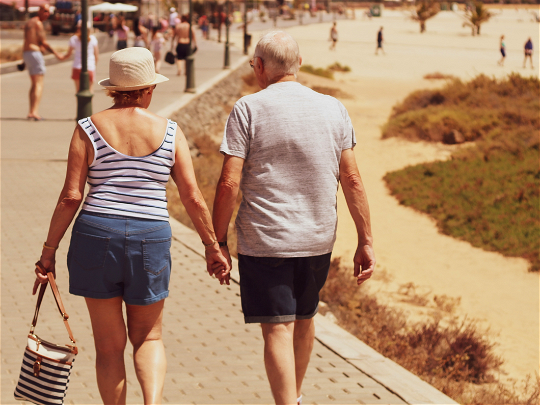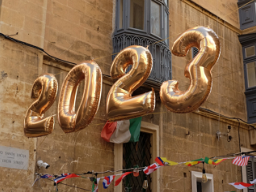Stargazer – astrology Apr 2024
Stargazer – astrology Apr 2024 – Venus; the secret to stellar relationships | How to find out where Venus is in your chart based on your date of birth – & more!
INSIGHT, Apr 6, 2024

Stargazer – astrology Apr 2024 – Venus; the secret to stellar relationships | How to find out where Venus is in your chart based on your date of birth – & more!
INSIGHT, Apr 6, 2024
4 questions for the New Year by David Durance. Moving from New Year’s disillusionment to some empowering ways for your year/s ahead, and what to leave behind.
INSIGHT, Jan 3, 2023
To have a really intimate, alive, healing, sexual relationship... takes baring yourself, being fully seen, and being able to communicate with a LOT of clarity
RELATIONSHIPS | LovingNow, Dec 6, 2022
Romantic connections have an amazing knack of showing us where we are at, and shining a light on what blocks us from experiencing deep love. One moment we’re loving wholeheartedly, and the next moment we sabotage ourselves through toxic behaviour patterns! Why does this happen?
RELATIONSHIPS | LovingNow, Nov 10, 2021
It’s a rookie relationship mistake trying to please others, and yet so many of us have fallen into that trap! We are taught to conform, even though it no longer serves us the way it used to. Here are some ways to reframe our attraction patterning.
RELATIONSHIPS | LovingNow, Nov 10, 2021
The time to be NORMAL has gone; this is a time to be extraordinary! YOGA TEACHER TRAINING HOME STUDY COURSE – the first and still the best – ENROLLING NOW
NEWS & REVIEWS, Aug 18, 2021
How coping with the lockdown started a new business, re-ignited a creative passion, and cured anxiety.
INSIGHT, Nov 19, 2020It may sound counter-intuitive but the key to thriving is struggle. So, if you have really struggled in lockdown this is your opportunity – grab it with everything you have!
INSIGHT, Nov 17, 2020
‘No man is an island’. The English poet John Donne was born way back in 1572; if we can forgive his lack of gender-inclusive language, we can surely get the universality and timelessness of his perception.
Nov 10, 2021
Making meaning helps us endure and recover from traumatic experiences, and could help you thrive beyond COVID-19 by Larissa Wright
INSIGHT, Nov 16, 2020
An accident can happen to anyone at any time. Resulting injuries can have a huge impact on your life, so here are 5 things to know when claiming compensation.
NEWS & REVIEWS, Oct 27, 2021
Looking at a few of the major reasons to convert to a vegan lifestyle, including the ethical argument, greater vegan options, sustainability, and more.
NEWS & REVIEWS, Sep 23, 2021
The following points will help you more than survive emotionally and spiritually, but more importantly, to thrive, both as an individual and in your relationships in this COVID-19 era.
INSIGHT, Nov 16, 2020
The old ‘normal’ is struggling to maintain its hold on our lives – the only difference is that it is from behind a screen rather than in the world ‘outside’.
INSIGHT, Nov 16, 2020
My cancer diagnosis gave me permission to do less. This transformed my life from constant turmoil to a life with intention and clarity.
INSIGHT, Nov 16, 2020
COVID-19 is clearly asking something of us which is greater than medicine and economics.
INSIGHT, Nov 16, 2020
Seeking strength through adversity, and adapting to change, Craig finds a way to prosper – and discovers a brand new passion along the way.
INSIGHT, Nov 16, 2020

Earlier this year, the world entered unchar ted waters when a coronavirus outbreak turned into a global pandemic. This placed the citizens of most industrialised countries in an unprecedented position, with home lockdowns, social distancing, and unfolding economic impacts whose ramifications are starting to emerge. The virus is affecting nearly everything, to a greater or lesser degree, including how environmental issues can be tackled.
INSIGHT, Nov 16, 2020
Let’s face it! When you’re having a self-pity party and you feel crap, the last thing you feel like doing is thinking about what you’re grateful for. This would totally ruin the vibe (of the party).
INSIGHT, Nov 16, 2020
Do you have the mind skills required to perform at your best during difficult times? Here are 3 lessons we can learn from this pandemic that equip us create a thriving future
INSIGHT, Nov 16, 2020

